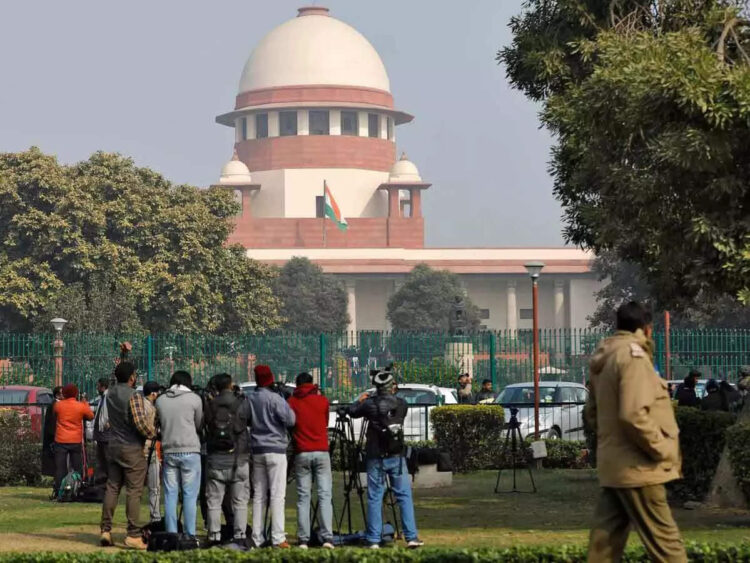The Supreme Court on Monday declined to entertain a plea seeking the imposition of President’s Rule and the deployment of paramilitary forces in West Bengal, which has witnessed recent unrest in the wake of developments related to the Waqf Act. The top court underlined the constitutional boundaries of judicial authority, noting that it cannot issue directives to the President in such matters.
A bench comprising Justices BR Gavai and Augustine George Masih made a significant observation while hearing the petition, stating, “You want us to issue a writ of mandamus to the President to impose this? As it is, we are facing allegations of encroaching into the executive (domain).”
The comment comes amid ongoing debate over the judiciary’s role in executive matters, with some political leaders raising concerns over what they term as “judicial overreach.” The backdrop includes recent landmark judgments, notably the court’s invocation of Article 142 to clear ten pending Tamil Nadu bills and its directive that the President must act within three months on bills referred by governors.
The latest plea regarding West Bengal was filed in response to violence in Murshidabad, where three people lost their lives and property was damaged amid tensions reportedly linked to the amended Waqf Act. The petitioner had sought central intervention through President’s Rule and deployment of paramilitary forces to restore order.
However, the court chose to exercise restraint, refusing to interfere with executive decisions. Legal experts believe this cautious approach underlines the judiciary’s commitment to constitutional boundaries, even amid heightened political rhetoric.
Justice BR Gavai, who is slated to take over as the next Chief Justice of India, is expected to preside over important cases, including those challenging aspects of the amended Waqf law. The Centre has maintained that the recent amendments aim to bring more transparency and better governance in Waqf properties.















Comments